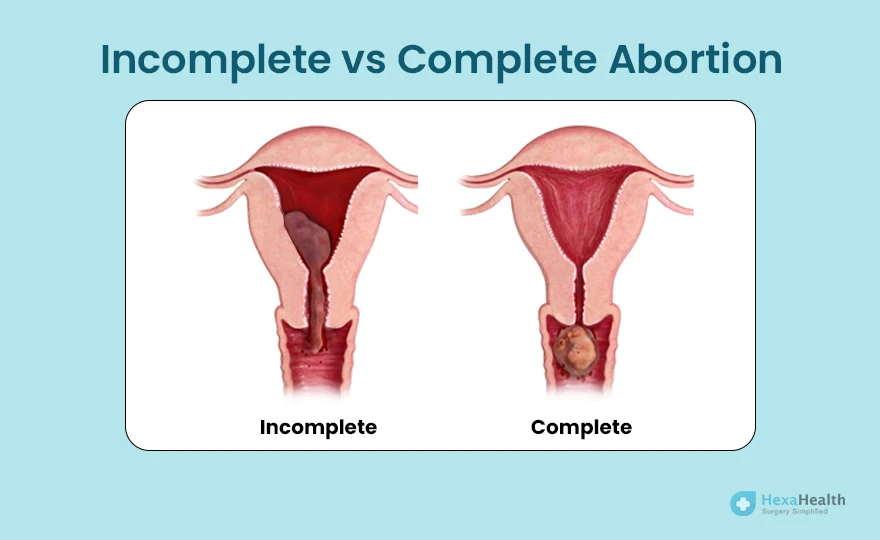Heavy Vaginal Bleeding: Moderate to severe vaginal bleeding is a common symptom of incomplete abortion as well as abortion that should not be ignored.
Pain and Discomfort: One can experience frequent lower abdomen or pelvic discomfort that spreads to the lower back, buttocks, genitalia, and perineum (skin patch between genitals and anus).
Blood Clot Discharge: The patient may spot blood clot discharge, a common symptom of incomplete abortion.
Fever and Chills: If the patient experiences persistent fever, chills and diarrhoea soon after the abortion, that may indicate incomplete abortion.
These The signs may start appearing a few days after an abortion and the severity of these symptoms can range from mild to moderate, or even severe.


